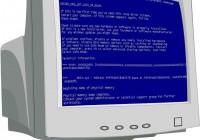Category Archives: Troubleshooting
Troubleshooting unplanned Windows automatic wake-ups
Whenever I finish working with my computer, I almost never power it off. Instead I send the computer into sleep or hibernate state. This saves lots of time at startup – I can easily continue working without reloading all the projects. However I discovered that recently my Windows 10 laptop started to wake up unexpectedly. Such unplanned wake-ups can damage computers, e.g. if a laptop left… Read More »
Access event logs from Windows recovery mode
Sometimes this happens. Your computer stops booting correctly and needs to be fixed. Even safe mode doesn’t help. You don’t know the reason of the fault – it may be a hardware failure or a driver bug, but you don’t want to reinstall the operating system. There is a good chance that Windows logs may contain some useful information for troubleshooting. However, you cannot boot… Read More »
Windows boot performance diagnostics. Part 2
If you read the previous part of this article, you already know what Microsoft-Windows-Diagnostics-Performance log is for, why similar events have different event types and what information is “hidden” in the event details. Now it’s time to practice. First, we need to decide what we will try to optimize. Let’s display only startup, shutdown and standby/resume events. The event IDs are 100, 200 and 300… Read More »
Windows boot performance diagnostics. Part 1
Have you ever seen that your computer starts booting slowly? Or it slowly restores its state from hibernation. Maybe you observe performance issues when shutdown or hibernate process? In this article, I will show you how you can use Event Log Explorer to find performance problems linked with the startup/shutdown/hibernate/resume processes. Starting from Windows Vista, Microsoft provides a bunch of event logs for different system… Read More »
Exporting event logs with Windows PowerShell
Do you need to automate error reporting based on recent events and don’t want to use third-party tools? This article describes how to collect events from different sources and unite them in one document using standard Windows instruments only. Recently I described how to export events into Excel format using our Event Log Explorer software. However, in some cases, using third-party software can be impossible.… Read More »
Case study – generating regular reports about the problems in your Windows network
Recently one of our clients asked us about the best way to organize a passive monitoring of their servers. The client told us that they don’t need to monitor the servers actively, but they want to have weekly reports about the problems. They tried to gather events using Windows PowerShell and export them to CSV format (to view events in Excel), but finally they gave… Read More »
Troubleshooting knowledge base
Some of us have dealt with the frustration of dealing with a problem we know we’ve experienced before, but didn’t register it properly. The outcome? We do it all over again, and basically, waste time and past effort. A good record of an analysis and key events can save a lot of time. Most of the internal knowledge bases used by companies, small and large,… Read More »
Troubleshooting philosophy – Windows event log error analysis
There are different circumstances that lead to an event log analysis. One of the most common is the reactive Windows error log search, “reactive” because it is done in reaction to a problem, “error log” because what we are looking for error events that will help us identify the origin of the problem. When searching the error log entries (error events in Application and System logs), it… Read More »
Once again about custom columns – extracting details from Application or System event logs
In my article “Exploring who logged on the system“, I described how to add to the event list custom columns that display data from the event description. Probably you might think that adding custom columns works for Security event logs only. Although we initially designed Custom columns feature exactly for Security logs (and referred them by name, e.g. Subject\Account name), we made it possible to use… Read More »









